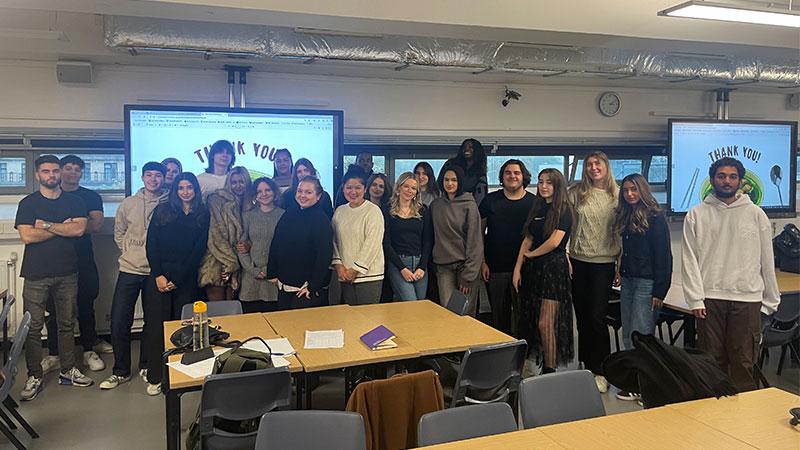Students from the University of Westminster’s Digital Marketing BA Honours, International Marketing BA Honours and Marketing Communications with AI Integration BA Honours courses experienced hands-on, work-based learning through the University’s Consumer Insights module. This innovative module facilitated engagement with four UK-based organisations including Imm Thai Fusion, Metro Coffee, The Dyas and CARVE who acted as clients for the students.

The module provided students with the opportunity to step into the role of consumer behaviour analysts at a consulting firm. Through the first assessment, students were tasked to conduct detailed research with the primary focus of exploring how sustainability impacts consumer decision-making processes within specific industries. As part of the module, students learnt the fundamentals of primary research, such as surveys, and secondary research, with a significant focus on online methods to gather and analyse consumer insights that inform marketing decision-making.
For the first assessment students engaged with businesses via live briefings and Q&A sessions which culminated in delivering live pitches directly to their clients with the results of their research. For the second assessment, students were tasked to identify and justify an opinion leader for one of the UK-based businesses participating in the module.
The collaboration between the businesses and the students was made possible through the efforts of the Westminster Enterprise Network (WeNetwork) and the module leader Maria Bortnovskaya. As the University’s entrepreneurial network, WeNetwork connects students and recent graduates with industry, helping them develop entrepreneurial skills, engage in self-employment opportunities and create businesses. The team helps connect students with the world of work to solve real-world problems and widen participation in entrepreneurship, enterprise opportunities and education.
The collaboration project has provided students with strong practical experience. Maria Bortnovskaya said: “Inviting businesses to collaborate on the module has a significant positive impact on students. Beyond the marketing skills developed through assessments, they also master essential soft skills such as client management and communication while making meaningful contributions to the marketing strategies of UK organisations. These experiences enhance their confidence and prepare them for job hunting and working effectively with businesses in real-world settings.”
Among the students who took part was Abigail Coverdale, a second-year Digital Marketing BA Honours student, who said: “Working with real businesses as part of the Consumer Insights module has been an incredible experience. It gave me opportunities to apply theoretical concepts to real-world scenarios and develop a deeper understanding of consumer behaviour in a professional context.”
Aleksander Olender, a second-year Marketing Communications with AI Integration BA Honours student, added: “Collaborating with a real client provided a valuable opportunity to apply the skills I have developed throughout my degree. It was incredibly rewarding to apply theoretical concepts into practical solutions and see my work's tangible impact. This experience not only reinforced my academic knowledge but also offered a deeper understanding of the challenges and dynamics of working in the marketing industry.”
The collaboration also had a positive impact on the participating businesses. Siriwan Hutangkabodee, owner and founder of Imm Thai Fusion restaurant, who was impressed with the quality of research performed by students and the recommendations they designed, said: “As an owner and founder of Imm Thai Fusion I am thrilled to witness the innovative contributions of Westminster Business School students. Their engagement through the Consumer Insights module has provided us invaluable perspectives shaping our business strategies.”
Through collaborating with businesses this module directly contributes to the United Nations Sustainable Development Goals (SDG) 4: Quality Education, 8: Decent Work and Economic Growth and 17: Partnerships for the Goals. Since 2019, the University of Westminster has used the SDGs holistically to frame strategic decisions to help students and colleagues fulfil their potential and contribute to a more sustainable, equitable and healthier society.
To find out more about how Westminster can help careers or businesses email the WeNetwork team or sign up for their newsletter.




